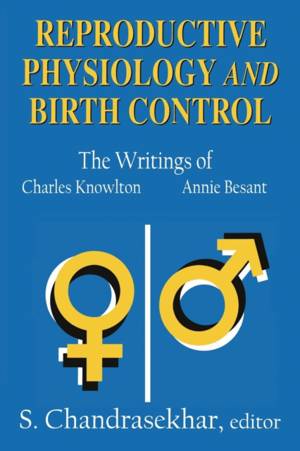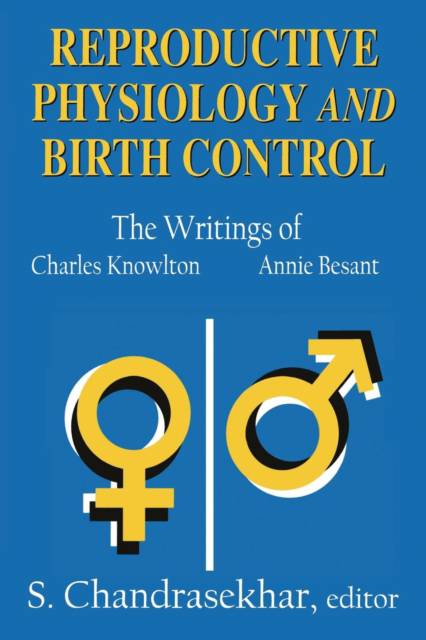
- Retrait gratuit dans votre magasin Club
- 7.000.000 titres dans notre catalogue
- Payer en toute sécurité
- Toujours un magasin près de chez vous
- Retrait gratuit dans votre magasin Club
- 7.000.000 titres dans notre catalogue
- Payer en toute sécurité
- Toujours un magasin près de chez vous
Reproductive Physiology and Birth Control
The Writings of Charles Knowlton and Annie Besant
S Chandrasekhar
Livre broché | Anglais
61,45 €
+ 122 points
Format
Description
"I say that this is a dirty, filthy book, and the test of it is that no human being would allow that book on his table, no decently educated English husband would allow even his wife to have ità." Such was the uncompromising pronouncement of Sir Hardinge Gifford, Her Majesty's Solicitor General, who in 1877 prosecuted Charles Bradlaugh and Annie Besant for publishing Dr. Charles Knowlton's Fruits of Philosophy.Knowlton's work was the first American medical handbook on contraception. It had become an incredibly popular book among Britons who believed the neo-Malthusian dictum that the only solution to poverty in Britain was a limit on the growth of its population. They saw effective birth control measures as a way to make such a limit practicable. In 1877, its publisher was hauled into court and pleaded guilty to printing obscene material. Bradlaugh and Besant tested the right of official harassment by bringing out an edition of the Fruits of Philosophy that bore an introduction explaining their motives. The pair was arrested and charged with violating the Obscene Publications Act of 1857.Their arrest, trial, conviction, and eventual acquittal constitute a landmark in the history of the world birth control movement. The enormous publicity accorded the principals and their cause brought the subject of family planning into the homes of nearly every Briton who read the newspapers' sensational coverage. What followed thereafter is telling: a dramatic, steady decline in the English birthrate. By their simple act of publishing Knowlton's short book, Bradlaugh and Besant helped establish England's pioneering role in the dissemination, democratization, and implementation of birth control information.Sripati Chandrasekhar is an internationally respected demographer and social scientist. He is a former minister of health and family planning in India and was vice-chancellor of Annamalai University in South India. He is the author of numerous books and articles on population and family planning.
Spécifications
Parties prenantes
- Auteur(s) :
- Editeur:
Contenu
- Nombre de pages :
- 234
- Langue:
- Anglais
Caractéristiques
- EAN:
- 9780765809049
- Date de parution :
- 31-01-02
- Format:
- Livre broché
- Format numérique:
- Trade paperback (VS)
- Dimensions :
- 153 mm x 227 mm
- Poids :
- 376 g







